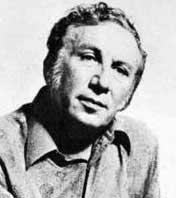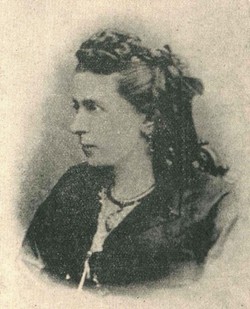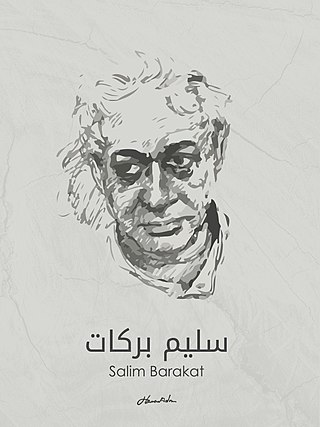Related Research Articles

Ali Ahmad Said Esber, also known by the pen name Adonis or Adunis, is a Syrian poet, essayist and translator. Maya Jaggi, writing for The Guardian stated "He led a modernist revolution in the second half of the 20th century, "exerting a seismic influence" on Arabic poetry comparable to T.S. Eliot's in the anglophone world."

Nizar Tawfiq Qabbani was a Syrian diplomat, poet, writer and publisher. He is considered to be Syria's National Poet. His poetic style combines simplicity and elegance in exploring themes of love, eroticism, religion, and Arab empowerment against foreign imperialism and local dictators. Qabbani is one of the most revered contemporary poets in the Arab world. His famous relatives include Abu Khalil Qabbani, Sabah Qabbani, Rana Kabbani, Yasmine Seale.

Yusuf al-Khal was a Lebanese-Syrian poet, journalist, and publisher. He is considered the greatest exponent of avantgardist prose poetry as well one of the pioneers of Arabic surrealist poetry.

Syria is a traditional society with a long cultural history. The Syrian's taste for the traditional arts is expressed in dances such as the al-Samah, the Dabkeh in all their variations and the sword dance. Marriage ceremonies are occasions for the lively demonstration of folk customs.
Ghadah Al-Samman is a Syrian writer, journalist and novelist born in Damascus in 1942 to a prominent and conservative Damascene family. Her father was Ahmed Al-Samman, a president of the University of Damascus. She is distantly related to poet Nizar Qabbani, and was deeply influenced by him after her mother died at a very young age.

Syrian literature is modern fiction written or orally performed in Arabic by writers from Syria since the independence of the Syrian Arab Republic in 1946. It is part of the historically and geographically wider Arabic literature. Literary works by Syrian authors in the historical region of Syria since the Umayyad era are considered general Arabic literature. In its historical development since the beginnings of compilations of the Quran in the 7th century and later written records, the Arabic language has been considered a geographically comprehensive, standardized written language due to the religious or literary works written in classical Arabic. This sometimes differs considerably from the individual regionally spoken variants, such as Syrian, Egyptian or Moroccan spoken forms of Arabic.

Maryana bint Fathallah bin Nasrallah Marrash, also known as Maryana al-Marrash or Maryana Marrash al-Halabiyah, was a Syrian writer and poet of the Nahda or the Arab Renaissance. She revived the tradition of literary salons in the Arab world and was the first Syrian woman to publish a collection of poetry. She may have been the first woman to write in the Arabic-language daily newspapers.
Nouri al-Jarrah is a Syrian-British poet and journalist.

Salim Barakat is a Kurdish-Syrian novelist and poet. He is considered one of the innovative poets and novelists writing in Arabic. Since the 1970s, he has published numerous novels, poetry collections, biographies and children's books. Several of his works have been translated into Kurdish, English, French, German, Swedish and other languages.

Mary Ajami was a Syrian poet and pioneering feminist writer in Arabic, who launched the first women's periodical in Western Asia called Al Arus.
Huda Naamani was a Syrian-born Lebanese feminist writer, poet, publisher, and artist. After moving to Beirut, Naamani wrote poetry that revolved around establishing womanhood and citizenship. She was most widely known for her contributions to poetry during the Lebanese Civil War. Naamani is a Lebanese citizen.
Rana Kabbani is a British Syrian cultural historian, writer and broadcaster who lives in London. Most famous for her works Imperial Fictions: Europe's Myths of the Orient (1994) and Letter to Christendom (1989), she has also edited and translated works in Arabic and English. She has written for Spare Rib, the International Herald Tribune, The New Statesman, The Guardian, British Vogue, The Independent, Al Quds al Arabi, and Islamica. She has made and contributed to many television and radio programmes for the BBC, on subjects such as literature, music, minority rights, Islamic culture, food, feminism, women's rights, painting, and British politics. She has spoken out against Islamophobia, defining its historic roots in colonialism. Her famous relatives include Abu Khalil Qabbani, her uncle Nizar Qabbani, her father Sabah Qabbani, and her daughter Yasmine Seale whose father is Patrick Seale.

Liwaa Yazji, alternative spelling Liwaa Yazaji, is a Syrian filmmaker, playwright, TV screenwriter, dramaturge and poet. Her works, written in Arabic, have been translated into English and presented in the United Kingdom, the US and, in original Arabic versions, in Arab states.
Amira Nur al-Din Daoud was an Iraqi poet. Born in Baghdad. After completing her secondary education, she joined Fuad I University in Cairo in 1943, and BA in Arabic Language and Literature in 1947, and a master's degree from the same university in 1957. She worked as a teacher of Arabic in secondary schools, then at the Faculty of Arts of Baghdad, then dean of the Institute of Applied Arts. Published her poetry in many Iraqi and Arab magazines and newspapers.
Badr al-Din al-Hasan ibn Muhammad al-Dimashqi al-Saffuri al-Burini, commonly known as al-Hasan al-Burini, was a Damascus-based Ottoman Arab historian and poet and Shafi'i jurist.
Maha Bayrakdar Al-Khal is a Syrian poet and artist. Bayrakdar sketched and wrote poetry at an early age; she completed fine arts studies in her native Damascus before obtaining a business administration degree in Munich, Germany. In 1967, she won the Miss Syria beauty pageant. In 1970 Bayrakdar married the Lebanese-Syrian poet Yusuf al-Khal and has two children with him, Ward and Youssef, both of whom are acclaimed actors in the Middle East.
Salma al-Haffar Kuzbari was a Syrian writer and translator. She is best known for her literary criticism and biography on the women's rights activist and writer May Ziadeh, as well as for her writing on Spain's Andalusia region, notably the book The Two Eyes of Seville.
Hazar Tabbakh is a Syrian poet and writer who has published several poetry collections, the most well-known poetry collection "On the Surface of Smoke, I Float", in which she addressed the subject of her motherland, Syria, and Lebanon; where she grew up for some years of her life. She published another poetry collection entitled "Shadow Scattering" by Khatwah for Publishing and Distributing, as well as the book "Praying for Gaza" published by Dar-Alamir in partnership with an elite poet of Al-Hakaya Literary Forum, in which she addressed the besieged Gaza Strip through a number of poems and sonnets.
Sania Saleh was a Syrian writer and poet, who wrote and published several poetry collections. Some of her poetry has been translated into English by Marilyn Hacker.
Khalida Said is a Syrian-origin author and literary critic. She has taught and published extensively on Arabic literature and culture since 1957.
References
- ↑ Imil Badi' Ya'qub (2004). A dictionary of poets from the beginning of al-Nahda. Vol. 1st (1st ed.). Beirut, Lebanon: Dar Sader. p. 9.
- ↑ "ابتسام الصمادي | المفكرة الثقافية". esyria.sy. Archived from the original on 18 April 2015. Retrieved 20 January 2020.
- ↑ Radwa Ashour (2008). Arab women writers : a critical reference guide, 1873-1999. American University in Cairo Press. p. 483. ISBN 9789774161469.
- ↑ نحيلي, سليمان (18 May 2019). "وجوه: الشّاعرة ابتسام الصّمادي.. في المنفى تصبحُ الشامُ حاسّتها السابعة". حرية برس Horrya press (in Arabic). Archived from the original on 9 July 2019.